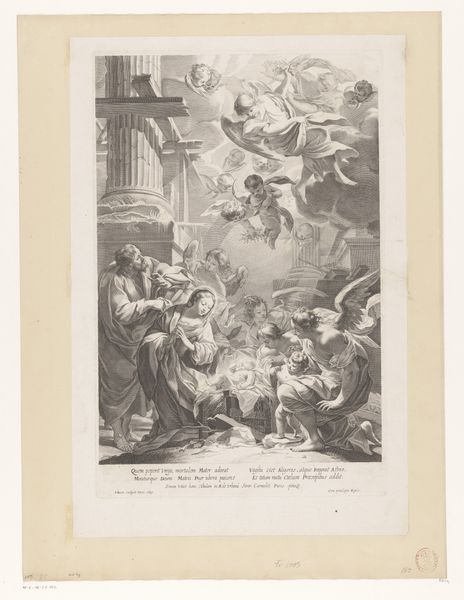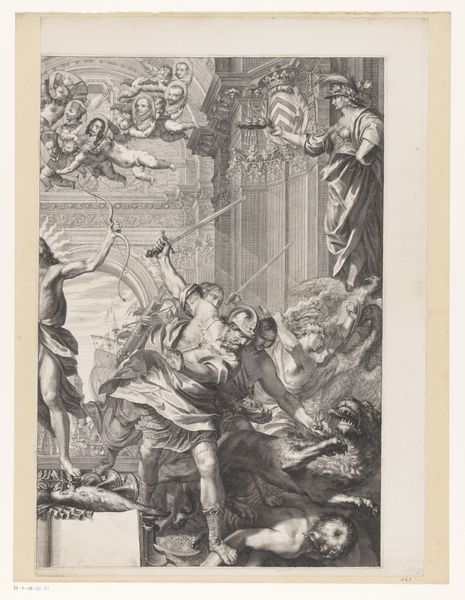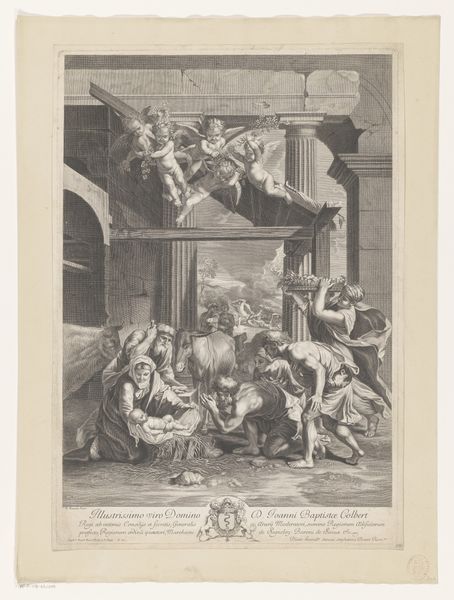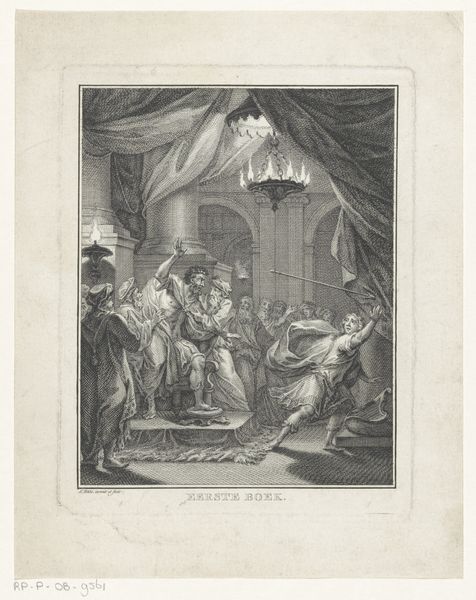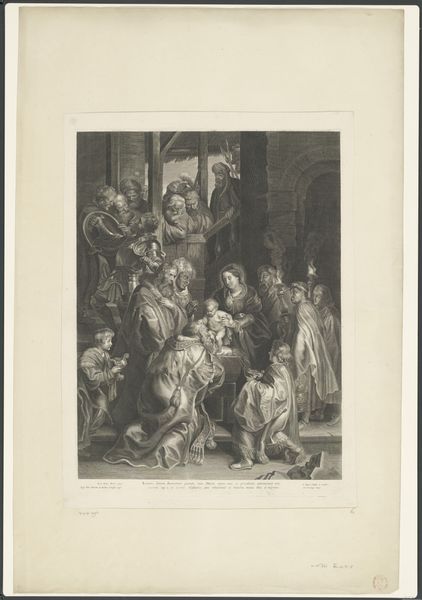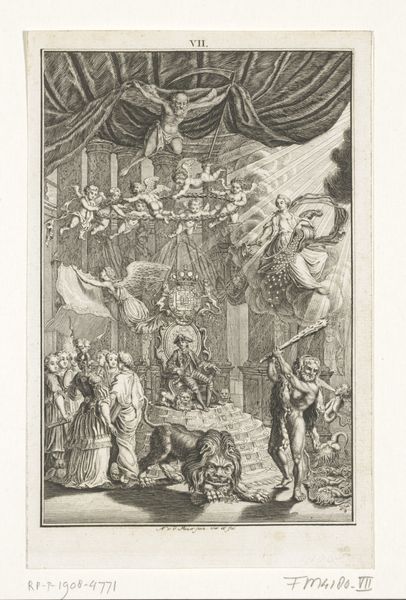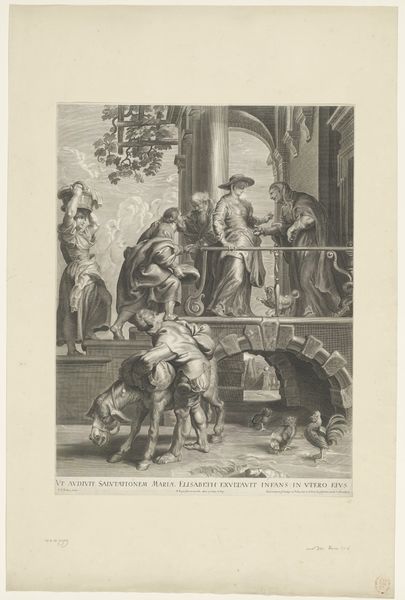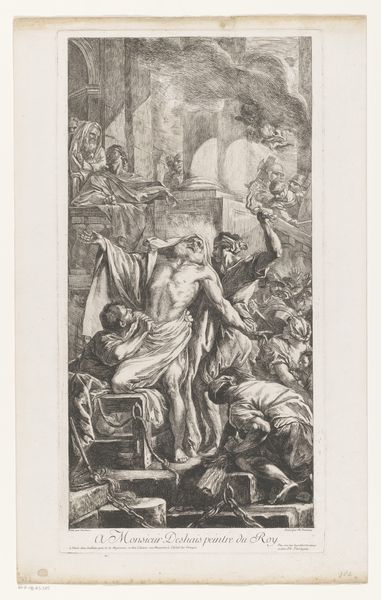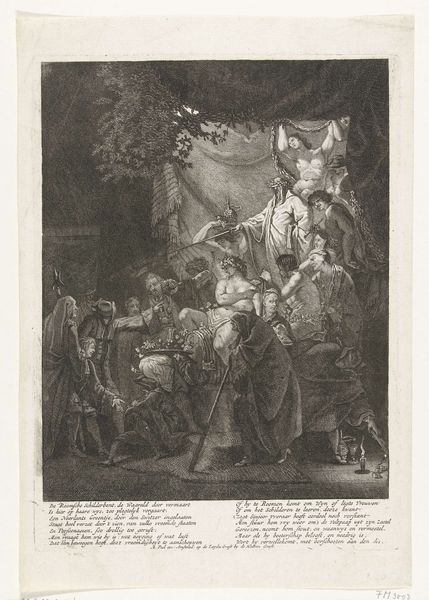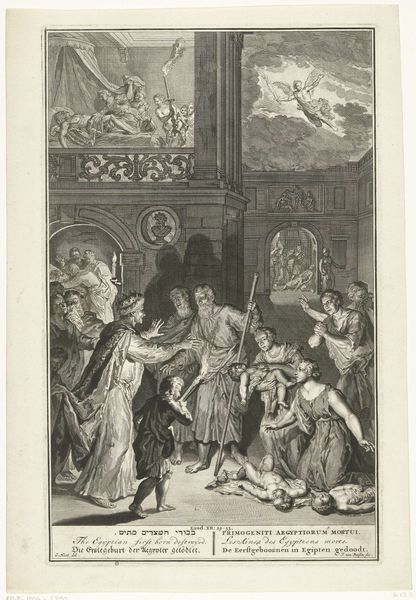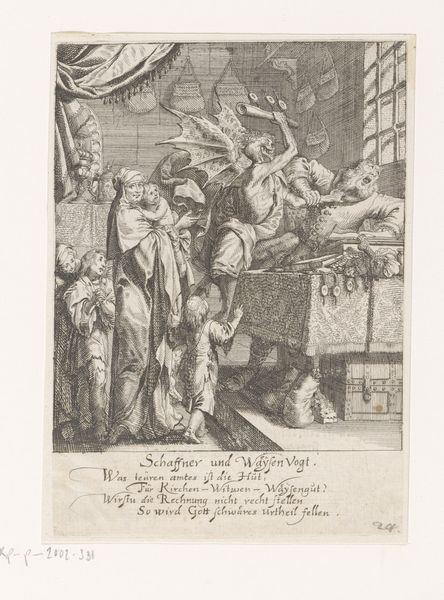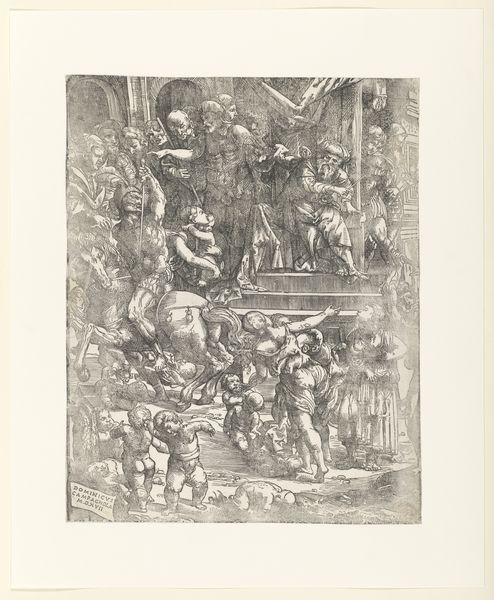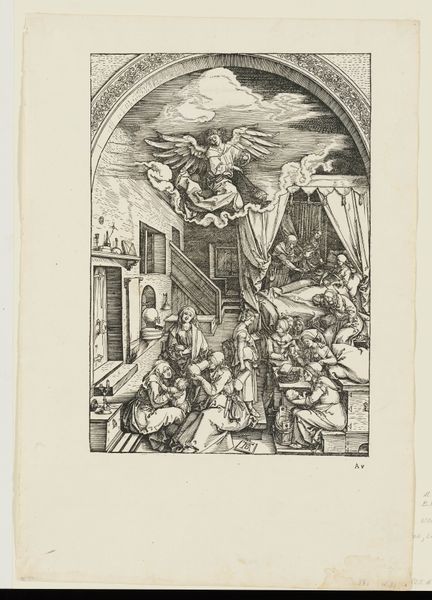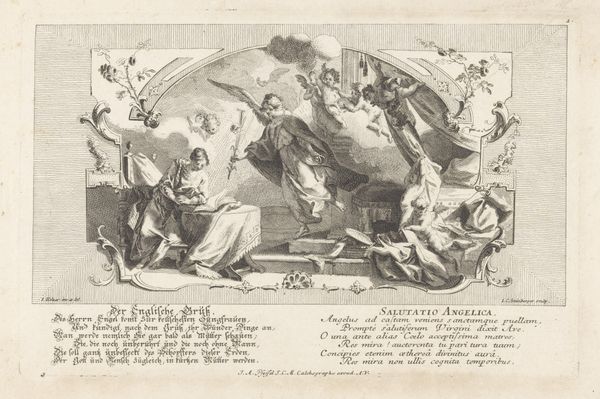
engraving
#
narrative-art
#
baroque
#
old engraving style
#
history-painting
#
engraving
Dimensions: height 467 mm, width 383 mm
Copyright: Rijks Museum: Open Domain
Lucas Kilian's "Adoration of the Shepherds," created around the turn of the 17th century, presents us with potent symbols of humility and divine revelation. The kneeling shepherds, bearing simple gifts, enact a scene echoing through millennia. Consider the shepherd's humble posture, a gesture of reverence that transcends this singular scene. We see it mirrored in ancient Near Eastern depictions of supplication before deities, and again in Renaissance paintings of courtly obeisance. This gesture, born of recognition and submission, evolves yet persists, a silent language connecting disparate eras. Above, the cherubic figures embody divine grace, their presence a beacon breaking through the darkness. Light, here, isn't merely illumination; it is a conduit for spiritual awakening, a motif found in countless religious artworks across cultures, from the haloed saints of Byzantine mosaics to the sun gods of ancient Egypt. The cyclical nature of these symbols reminds us that art isn't linear, but a spiral, with motifs resurfacing, evolving, and taking on new meanings in different contexts. The emotional power embedded in this visual language engages viewers on a deep, subconscious level, bridging the gap between centuries and cultures.
Comments
No comments
Be the first to comment and join the conversation on the ultimate creative platform.
